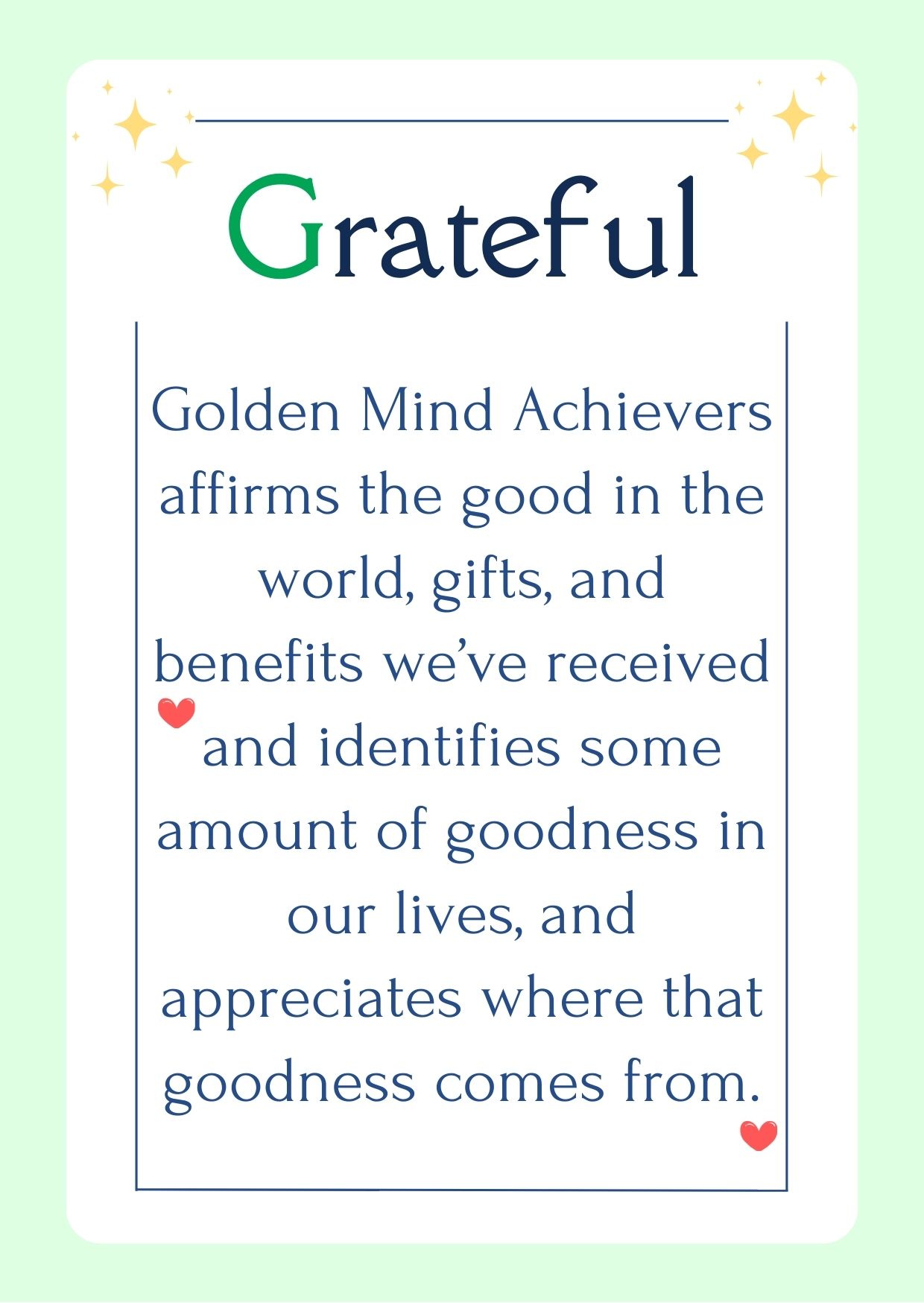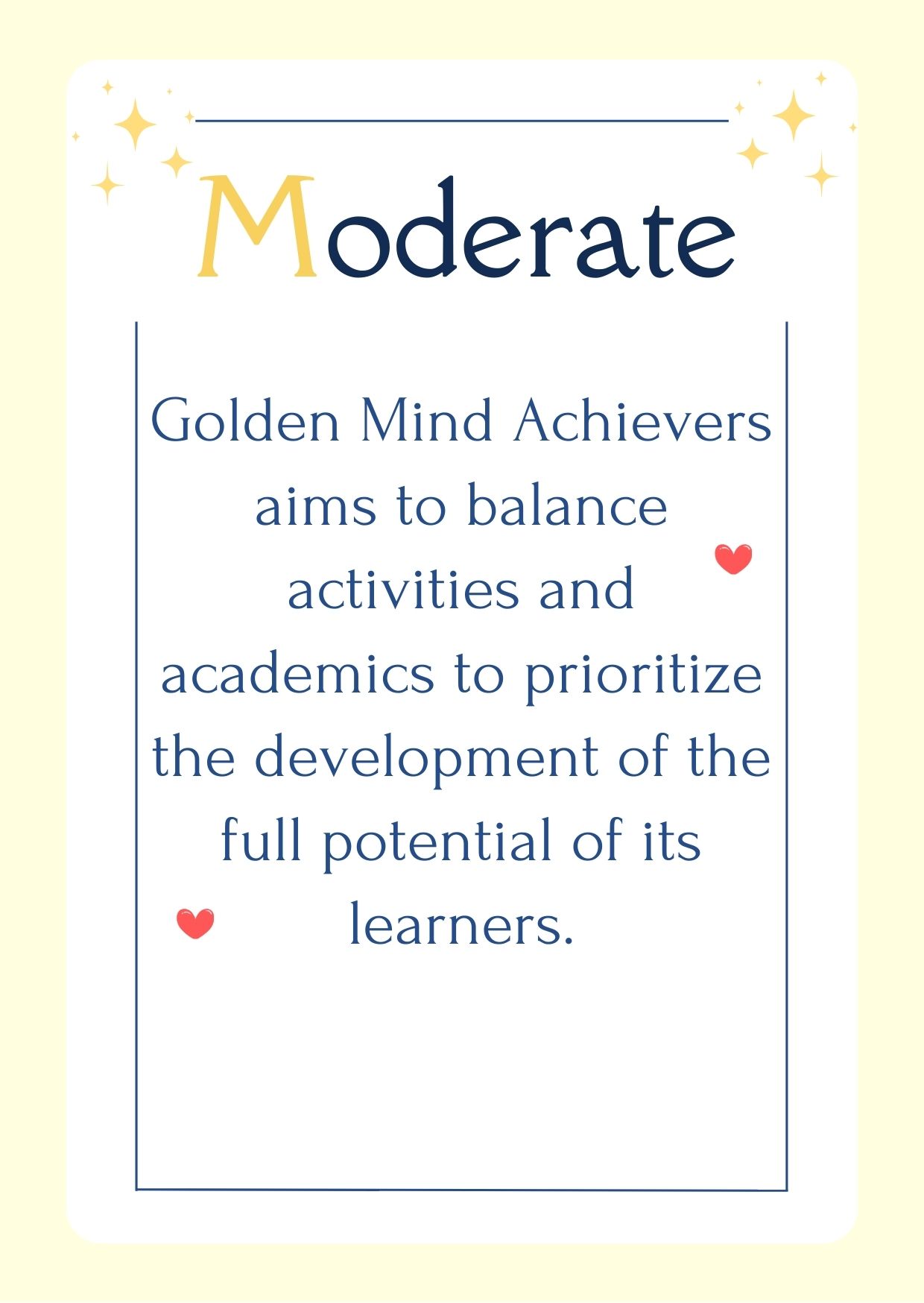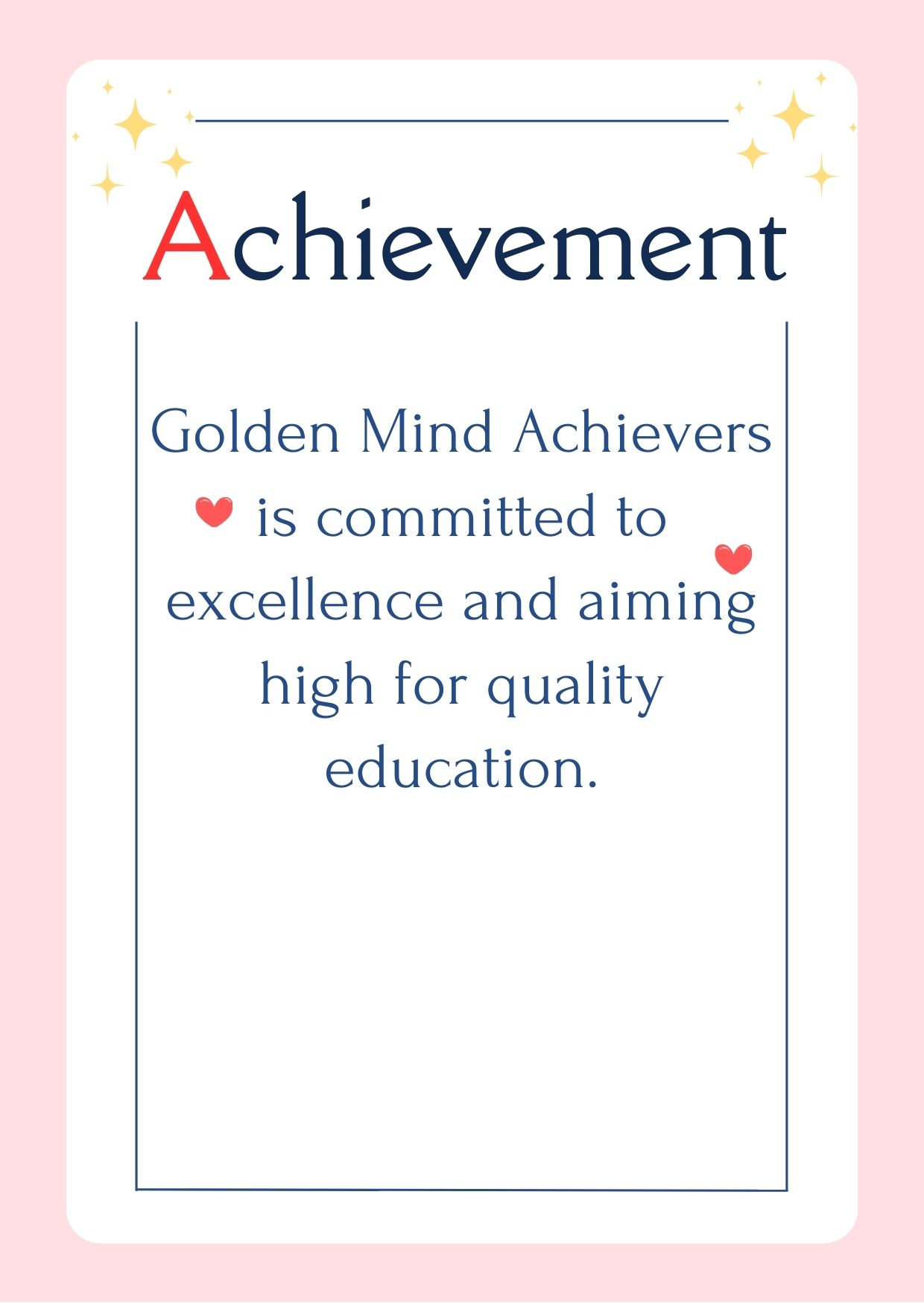Mission
Golden Mind Achievers International School commits to providing an enlightening and nurturing learning environment to educate and support each individual child in building a foundation for life-long learning and the betterment of humanity.
Vision
Golden Mind Achievers International School is committed to the holistic formation of the young for nation building and the betterment of humanity.



